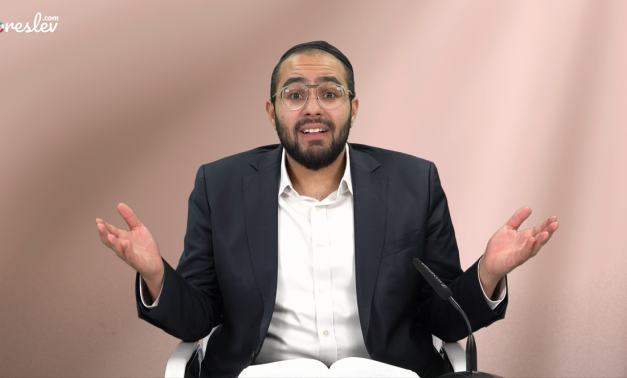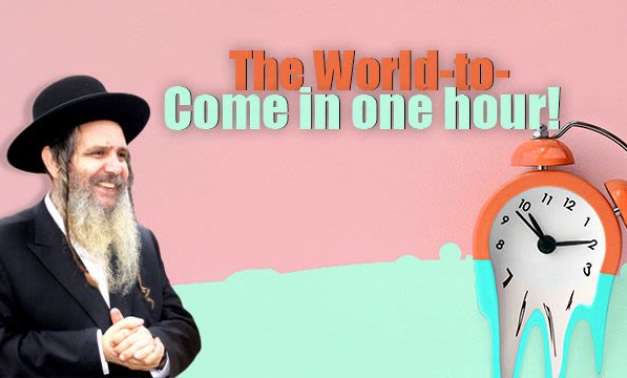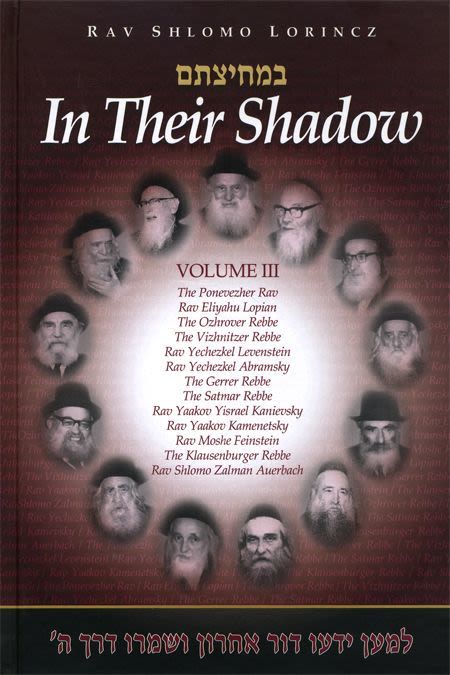
Fear One, and Fear No One
The whole world was afraid of Haman; the one exception was Mordechai. What made him so courageous in his refusal to prostrate himself before the arch-tyrant?

The whole world was afraid of Haman; the one exception was Mordechai. What made him so courageous in his refusal to prostrate himself before the arch-tyrant?
The answer is simple – Mordechai had true fear of Hashem. When you fear One, you fear no one.
Rebbe Nachman of Breslev teaches that when a person sins and fails to do subsequent teshuva, he succumbs to “fallen fears.” He begins to be afraid of policemen, disease, thieves, the IRS and any other number of fear-imposing agents. Why? If he would have feared Hashem, then he’d have made teshuva – confessing, apologizing and asking Hashem to help him mend his ways. But since he has not made teshuva, the negative spiritual forces created by his misdeeds manifest themselves in any number of fear-imposing agents which come back to torment him. As such, a person’s misdeeds and his lack of teshuva are the very things that cause him so much anguish in life.
Without daily self-assessment, a person is in effect declaring that he has no fear of Hashem and he doesn’t care about whatever accusations there are against him. Therefore, Hashem sends him a variety of “wake-up calls”, things that cause him to be afraid, to show that the world is not anarchy and that there is a consequence to every action. Hashem neither ignores nor forgets. He runs the world justly, so a person cannot just turn his back on the obligation to account for everything he does. King Solomon says, “For G-d will judge every deed – even hidden – for good or for bad” (Ecclesiastes 12:14). Consequently, a person should fear Hashem’s judgment, not because Hashem wants us to be afraid, but because fear is the means that Hashem arouses us from spiritual slumber. We should contemplate how we fear tangible  things, His mere creations; so if we fear His creations, shouldn’t we fear Him?
things, His mere creations; so if we fear His creations, shouldn’t we fear Him?
There’s a remarkable benefit to fearing Hashem. One who truly fears the Holy One, fears no one else. This is the desirable fear that King Solomon referred to when he said, “Happy is he who fears always” (Proverbs 28:14). In other words, he has yirat shamayim, the fear of Hashem in his heart. But without daily self-assessment, a person won’t attain true fear of Hashem. The Torah describes such people when it says, “And you’ll be afraid day and night” (Deuteronomy 28:66), for many things will scare you; those who don’t fear Hashem will have all sorts of worries and phobia.
Let’s further clarify what true fear of Hashem is.
There are three levels of true fear of Hashem: fear of punishment, fear of sin, and exalted fear.
Fear of punishment means that a person is afraid to sin because he knows that ultimately, he will be punished for every wrongdoing. He knows that transgressions are like items on a menu in a restaurant – you must pay for each item. He therefore avoids sin because he certainly doesn’t want to pay the penalties. Even though this is the lowest level of the three types of fear, it is a prerequisite for anyone who wants to get close to Hashem.
If a person lives without the feeling of accountability for his actions, he can’t possibly attain emuna, for we believe that Hashem rewards all who do His will and punishes those who transgress His will (see Rambam’s Thirteen Tenets of Faith). Also, the belief in the World to Come is a Jewish bulwark against wrongdoing, for we believe that after death, every person will receive tremendous rewards for the good they did and excruciating purification of the soul for the misdeeds they did, down to the tiniest detail.
Even though fear of punishment is desirable, it should only be a stepping stone to the higher levels of fear.
Mere fear of Hashem due to punishment is far from our ultimate goal. The soul yearns to cling to Hashem; would it cling to Hashem if it knew that it wouldn’t be punished? If a person has no more than fear of punishment, and if he were to receive a written guarantee from the Heavenly Court that he won’t be punished for his favorite forbidden act, then he would run to do that forbidden act! In other words, the only thing that keeps him from sinning is the fear of the punishment. He figures that indulging in a forbidden act of Torah isn’t worth bankruptcy or a heart attack.
Some people have a slightly higher level of fear of punishment; they’re worried about being punished in the World to Come. Even though striving to earn a place in the World to Come is a nice goal, it still means that a person’s whole life was self-serving; his good behavior was for his own best interests and not because he wanted to cling to Hashem. He doesn’t mind transgressing in order to satisfy his bodily appetites and lusts as long as he won’t be punished. Consequently, fear of punishment is favorable entrance-level fear of Hashem, but a person should strive for more.
Fear of sin means that a person refrains from sinning because he’s afraid of losing his connection with Hashem. As such, fear of sin is on a higher level than the mere fear of punishment. A person who fears sin will avoid transgressing even if he knew that he wouldn’t be punished for his transgressions. He prefers his relationship with Hashem to any imaginary pleasures of sin. Our sages referred to this level when they said, “One whose fear comes before his wisdom, his wisdom will be evident” (Mishna, Avot, Ch. 3:9). But even on this level, if Hashem were to promise the sin-fearing person that the sin won’t damage his relationship with Hashem, he too would sin.
Exalted fear is the highest, most desirable level of fearing Hashem. This is the true yirat Shamayim, the true fear of Hashem that we all should strive for; the level of the true tzaddikim in every generation. This level is beyond fear; in effect, it is the epitome of loving Hashem. One who has attained this level is totally connected to Hashem. The only thing that matters to him is the King’s glory and honor. He neither cares about himself nor is concerned with his own personal interests. His mind is preoccupied with thinking how he can exalt and sanctify Hashem’s Holy Name in the world.
The nightmare of a person with exalted fear is that he should cause a defamation of Hashem’s Name, a million times Heaven forbid. His greatest dream and desire is sanctifying Hashem’s Name, a goal that he devotes his life to. Unlike those with fear of sin, the person with exalted fear cares nothing about himself. He’s not preoccupied with his own spiritual status or his own connection with Hashem. All he cares about is Divine honor. He’ll do anything to spread emuna, to disseminate the knowledge of Hashem and publicize Hashem’s glory the world over.
A person on this level will do Hashem’s will even if he’s threatened with death. And, if he’s offered the greatest reward for transgressing, he will not transgress, for he loves Hashem so much, more than his own life. He lives to sanctify Hashem’s Name. Consequently, whereas fallen fears immobilize a person, the fear of Hashem gives him tremendous strength and inner peace. May we all so merit, amen!












Tell us what you think!
Thank you for your comment!
It will be published after approval by the Editor.